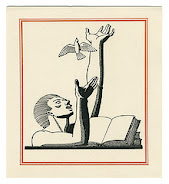Jorge Volpi affirms that
there is no "Latin American literature". He explains:
No hay nada que ligue, directamente, a escritores de una parte del continente con escritores de otra. O sería una unión tan arbitraria como hablar de escritores del mediterráneo, del Medio Oriente, del África Subsahariana, en donde solo por razones de clasificación académica sirven, pero ya no dice mucho de lo que verdaderamente está pasando. Creo que hasta Roberto Bolaño, que es un ejemplo claro, había la intención en esta generación de escritores de referirse a una tradición latinoamericana. De conocerla, de apreciarla y de revelarse frente a ella. Pero me parece que, prácticamente, eso ha desaparecido en los escritores de mi generación y los más jóvenes. Los modelos ya no son, necesariamente, latinoamericanos. Ya ni siquiera la lengua española es motivo de unión, como se vio aquí en Bogotá 39. Hubo invitados dos escritores, que consideramos latinoamericanos, pero que escriben en inglés. Entonces no es tanto decir como que no tiene futuro la literatura latinoamericana, como decir que esta literatura ya no existe. Pero existen escritores valiosísimos también en estos países y hay que también dejarlo claro y espero que quede patente en el libro.
("There is nothing that directly links writers from one part of the continent with writers of another. Or it would be a connection as arbitrary as talking about writers from the Mediterranean or the Middle East or Sub-Saharan Africa, where it works for reasons of academic classification, but it doesn't really say much about what's truly happening now. I think that even Roberto Bolaño, who is a clear example, and writers of that generation, had the intention of speaking of a Latin American tradition. To know, appreciate, and show themselves as being a part of it. But it seems to me that this has practically disappeared in writers of my generation and in the younger one. The models are no longer Latin American, necessarily. Now the Spanish language isn't even a reason for union, as we saw with the
Bogotá 39. Two writers were invited, who we consider Latin American, who write in English [
Junot Díaz and
Daniel Alarcón]. So it's not like saying that Latin American literature has no future, but that this kind of literature no longer exists. Yet there do exist incredibly valuable writers in these countries, which must be made clear, and which I hope is evident in my book" [
El insomnio de Bolívar].)
You'll be hearing more about him soon from
Three Percent:
We’re also kicking off the next Reading the World Conversation Series season in October with a visit from Jorge Volpi, who is one of the founding members of the Crack group (“crack” as in “break” with derivative magical realism) and author of Season of Ash.
M.A. Orthofer already has it under
review.
UPDATE: Fellow
Bogotá 39 author
Iván Thays comments on this same interview and
concurs with Volpi's take on Bolaño.

